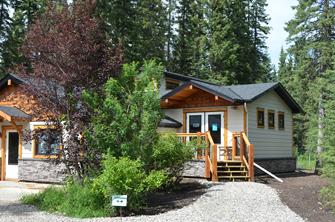Weight Training Vs. Cardio Exercises
We are inundated with information that exercise is good for you for a multitude of reasons. However, what is the best type of exercise to get the most bang for your time and energy? There is increasing evidence that weight training over cardio activity is the most advantageous. While the buzz around cardio is that it sheds pounds faster, research shows that weight training is the ticket for muscle strength and boosting metabolism. It is recommended to incorporate weight training at least three times a week and spend less time on cardio.
In 2018, the American College of Cardiology presented research that showed that static activities such as strength training are more strongly associated with reducing cardiovascular disease risks than cardio exercises like walking and biking. Researchers found that both static and dynamic activity had a positive effect on risk factors such as high blood pressure, being overweight, diabetes and high cholesterol. However, the benefits were strongest for the strength training activity in both youth and adults. An epidemiologist and assistant professor in the Department of Public Health and Preventive Medicine at St. George’s University states “Both strength training and aerobic activity appear to be heart healthy…however, static activity appeared more beneficial than dynamic.”
Fitness experts have identified several proven benefits of why to choose strength training over cardio for the focus of your exercise program. Here are some highlights:
- Bone and joint health – weight training focuses on strengthening muscles. This low impact exercise exerts less strain on the joints while boosting bone density which is important for preventing diseases like osteoporosis and arthritis. Functional activities like lunges, squats and stair climbing are great lower body exercises.
- Improving muscle mass – weight training signals the muscles to adapt and grow stronger. Women often have a harder time building muscle mass and worry that weights will make them bulky. Rather, lifting weights can help to tone muscles and burn more calories for longer.
- Promotes weight loss – strength training helps to boost lean muscle mass and increases metabolism which promotes fat loss.
- Improves cardiovascular health – strength training helps to lower bad cholesterol and stimulate the good cholesterol. This leads to overall lower blood pressure.
- Boosts overall performance – having stronger bones and muscles will help improve speed, agility, endurance and power. This will boost performance in daily living activities as well as athletic endeavours.
- Promotes a good mood and reduces stress – strength training stimulates a release of endorphins, a hormone that helps to fight depression and aids in reducing pain.
Overall, a variety of exercises will help you build a healthy, resilient body. The National Institute of Aging advises older adults to engage in four types of exercise:
✓ Aerobic exercise that increases breathing and raises the heart rate (walking, jogging, cycling, swimming, golf )
✓ Strength or resistance training for major muscle groups in the upper and lower body (push ups, rowing, lunges, squats, weights, and bands resistance exercises)
✓ Balance exercises to reduce the risk of falls (tai chi, yoga)
✓ Flexibility exercises that increase one’s joint range of motion and lubricate the joints.
In summary, the best bang for your time, energy and overall health is to ensure you incorporate 2-3 days of resistance training a week. This includes activities that use weights, bands or your own body weight. If you would like some direction on where to start or have a customized program designed for you, we would love to set you on the right track. Between the physiotherapists, an athletic therapist and a personal trainer – we are equipped to get you feeling your best.
by Jennifer Gordon
BSc. PT, GunnIMS, AFCI
Physiotherapist, Bragg Creek Physiotherapy
www.braggcreekphysio.com

























